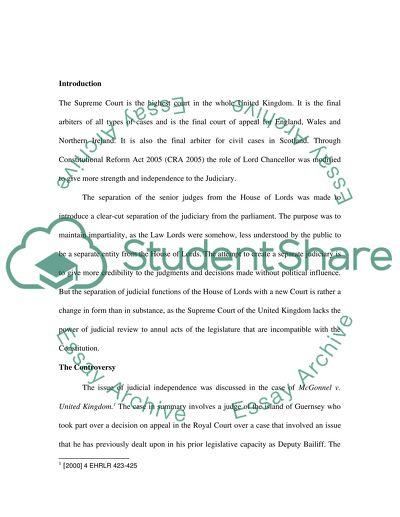Cite this document
(“The United Kingdom Supreme Court: A Physical Transparency of Essay”, n.d.)
Retrieved from https://studentshare.org/law/1418196-ycha-core-function-of-any-supreme-court-is-to
Retrieved from https://studentshare.org/law/1418196-ycha-core-function-of-any-supreme-court-is-to
(The United Kingdom Supreme Court: A Physical Transparency of Essay)
https://studentshare.org/law/1418196-ycha-core-function-of-any-supreme-court-is-to.
https://studentshare.org/law/1418196-ycha-core-function-of-any-supreme-court-is-to.
“The United Kingdom Supreme Court: A Physical Transparency of Essay”, n.d. https://studentshare.org/law/1418196-ycha-core-function-of-any-supreme-court-is-to.


